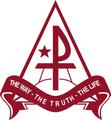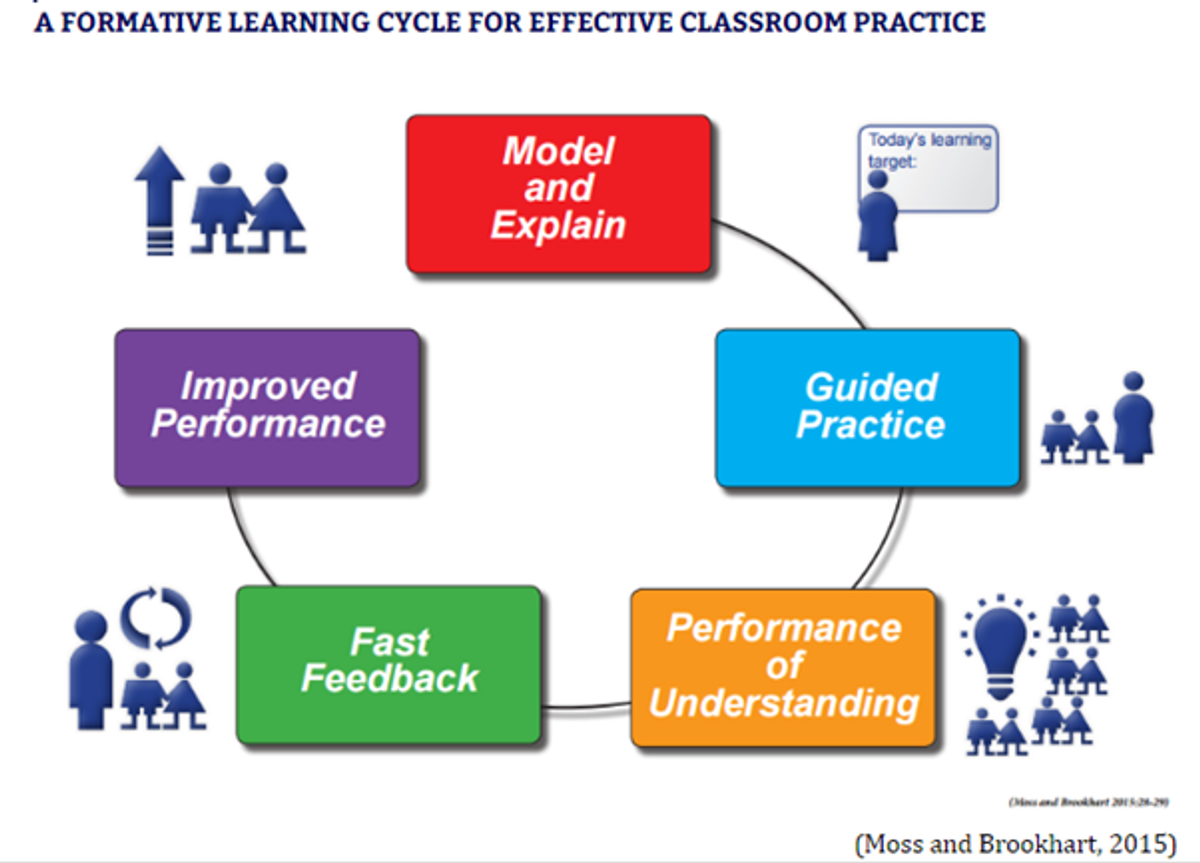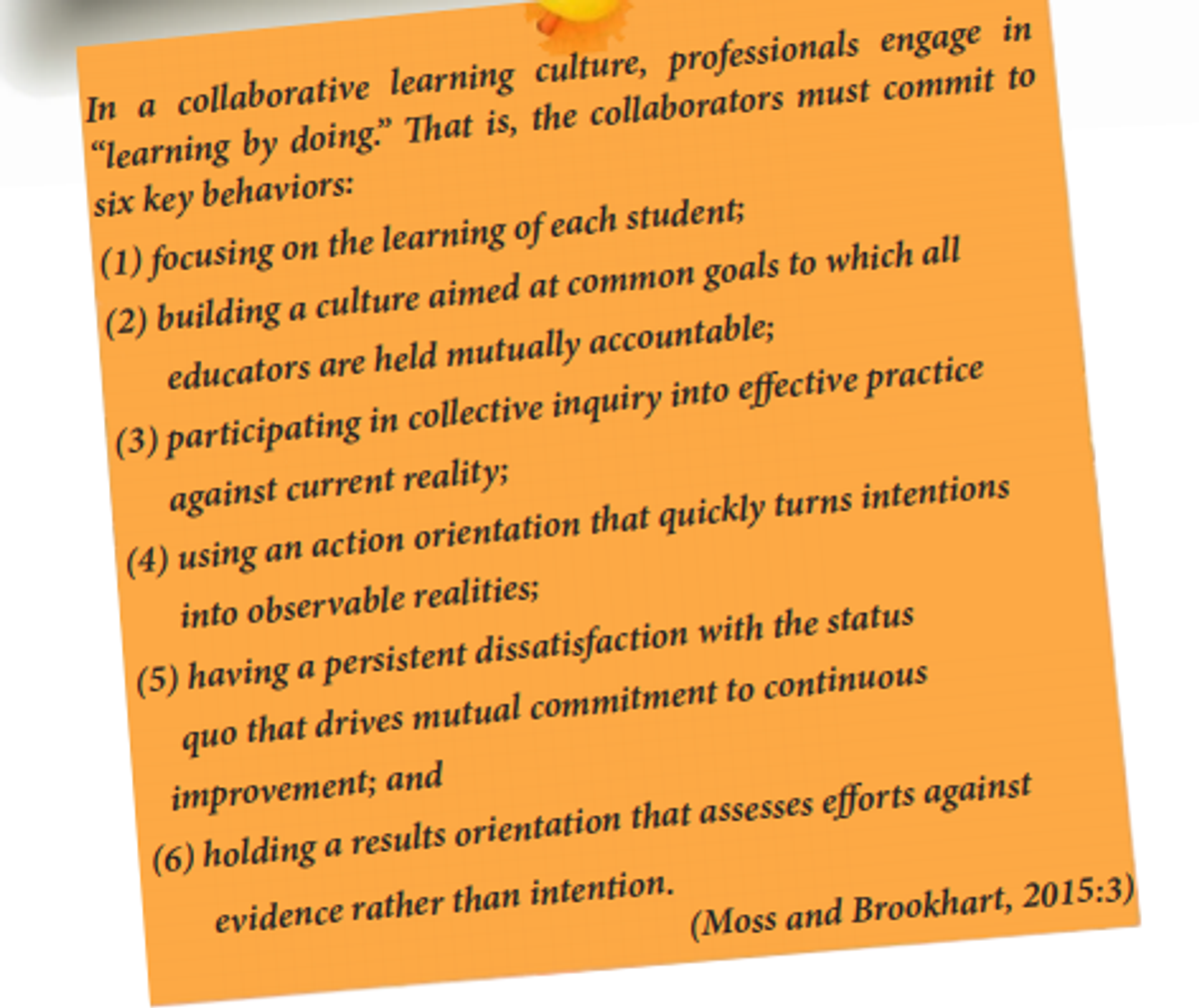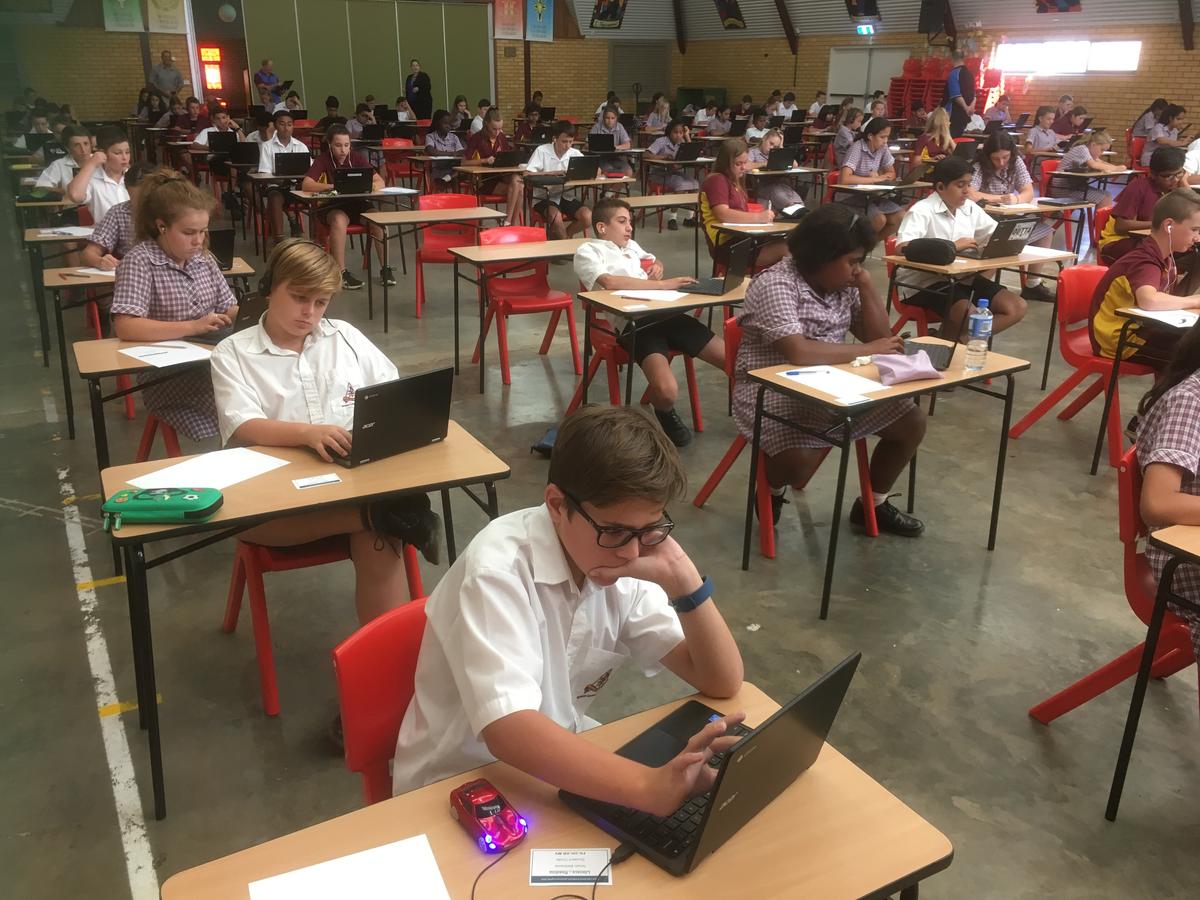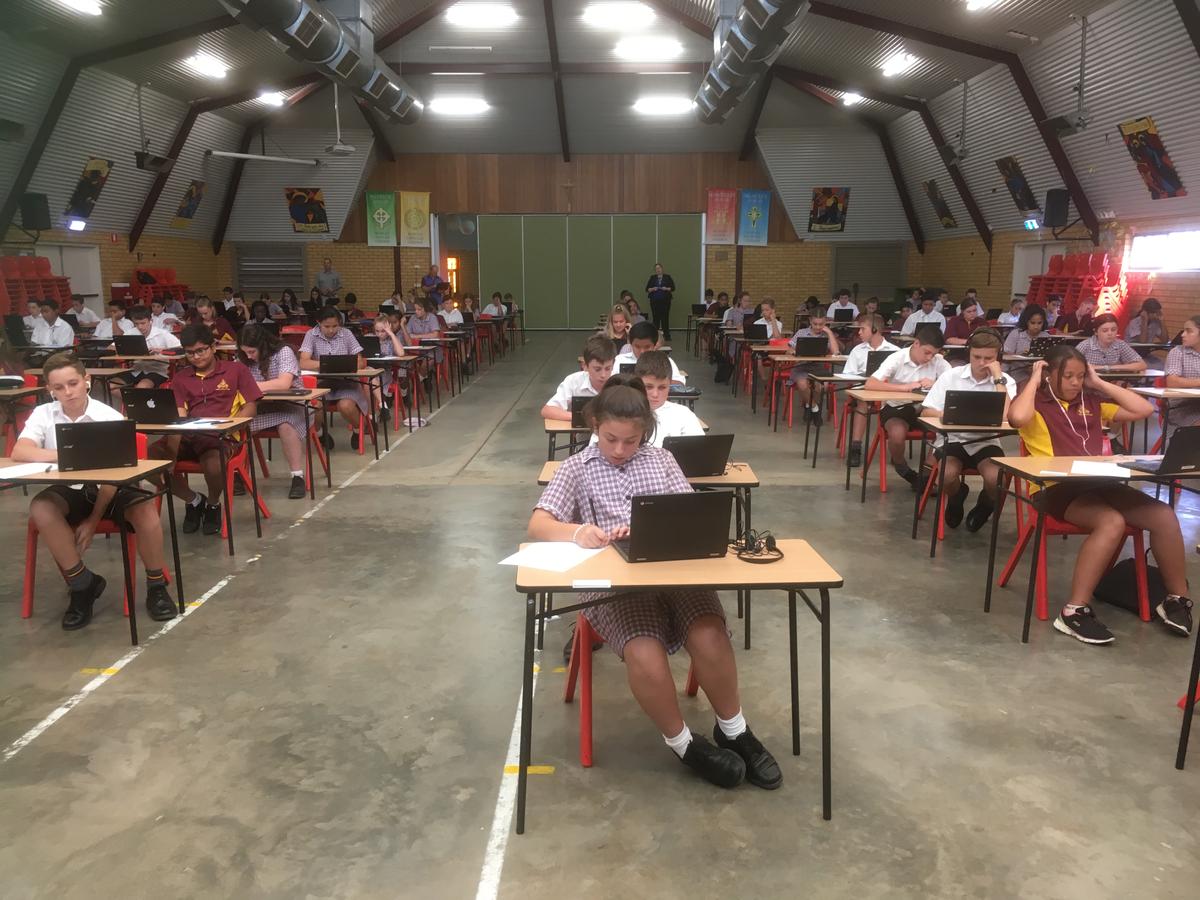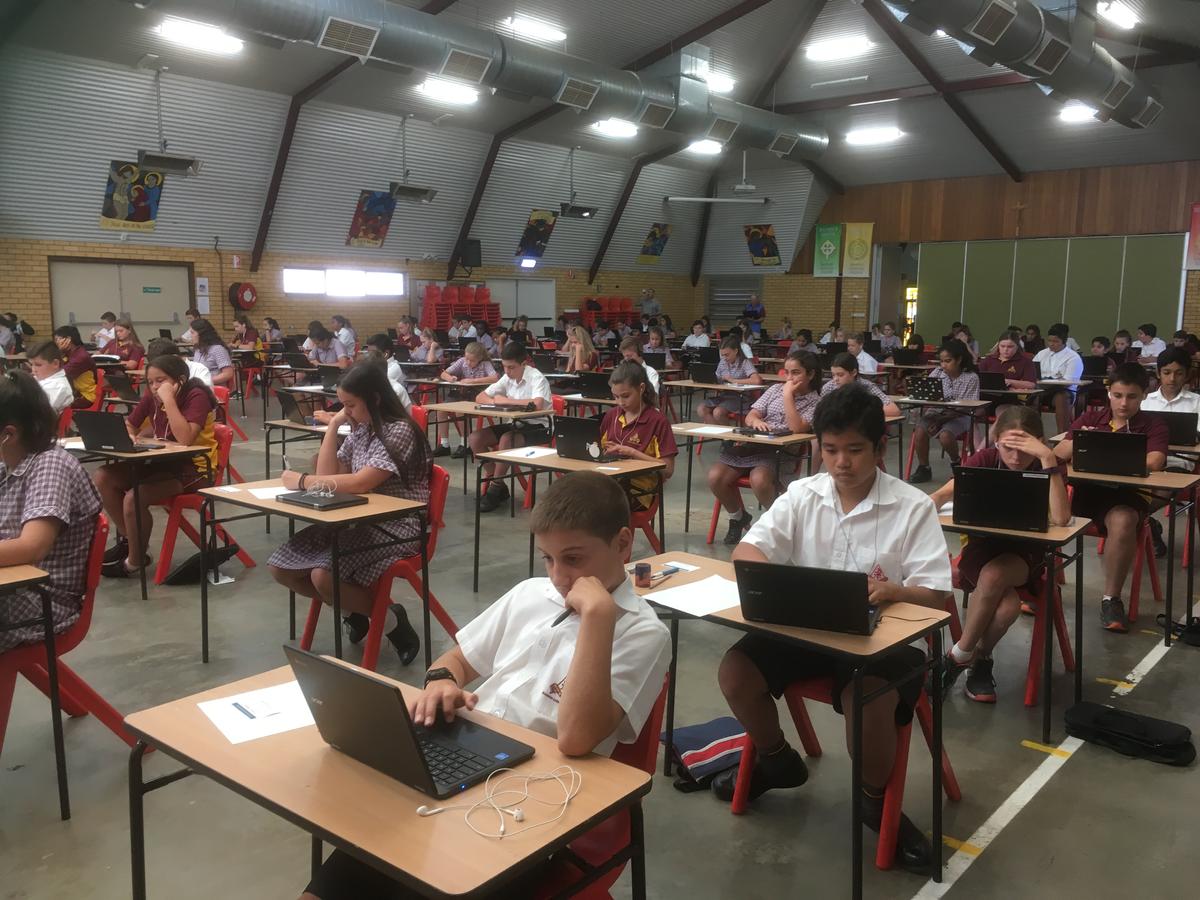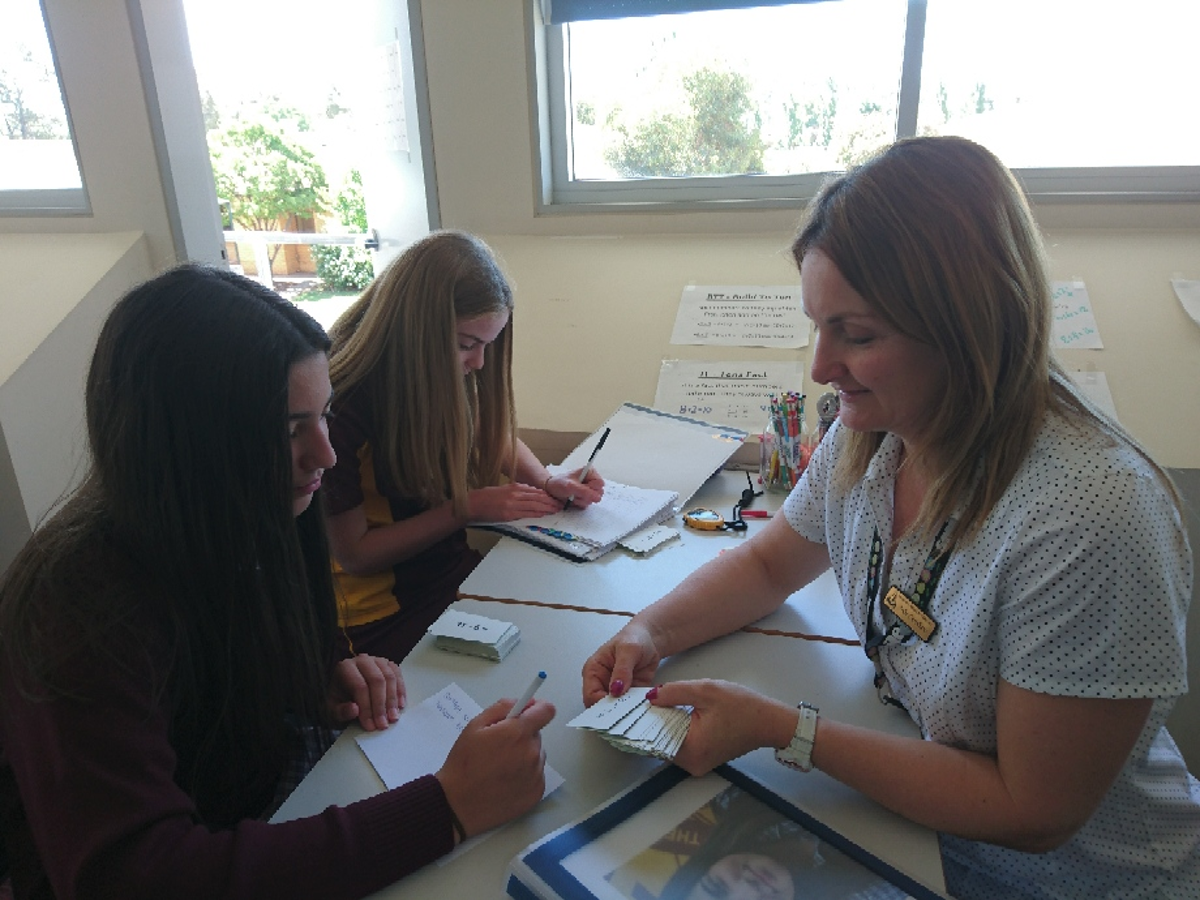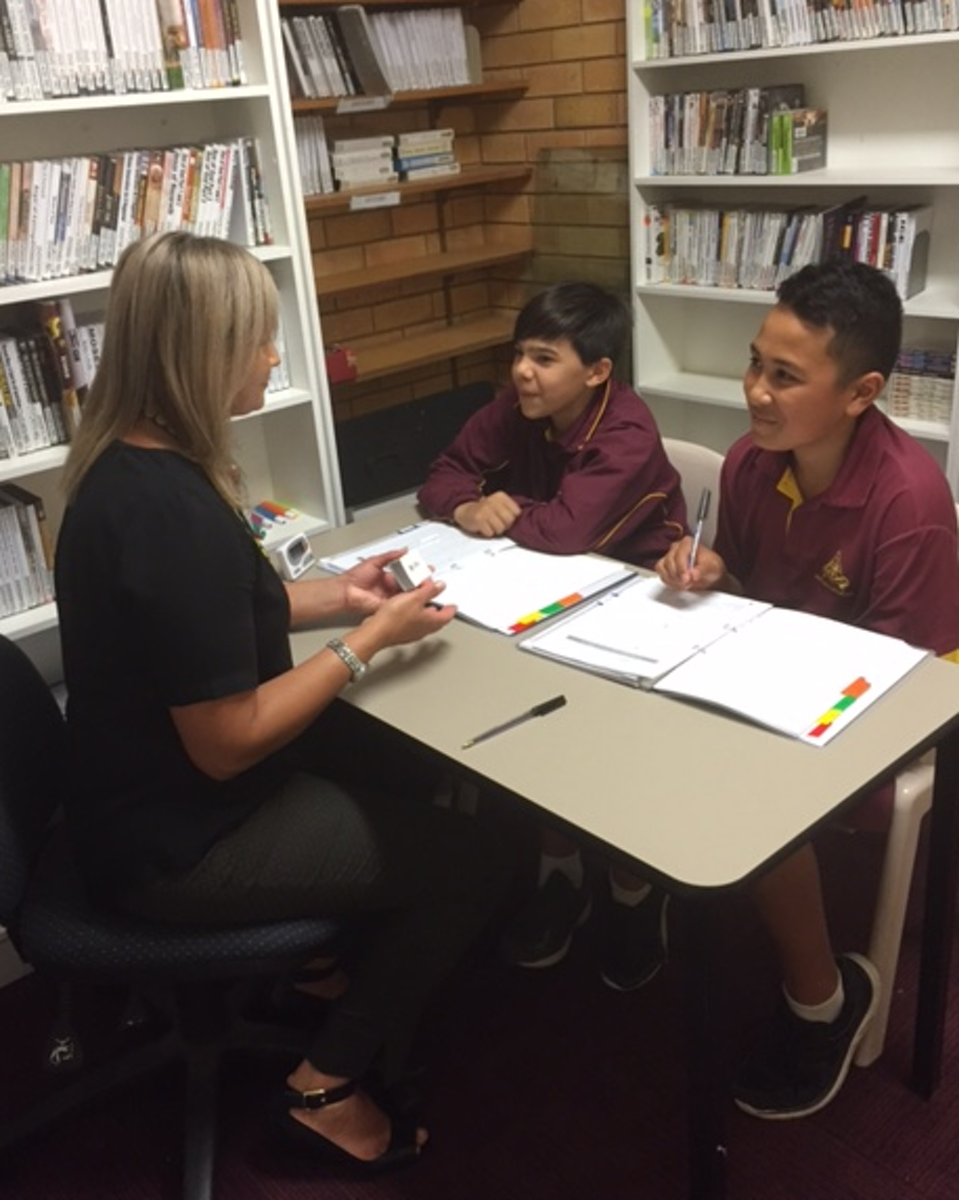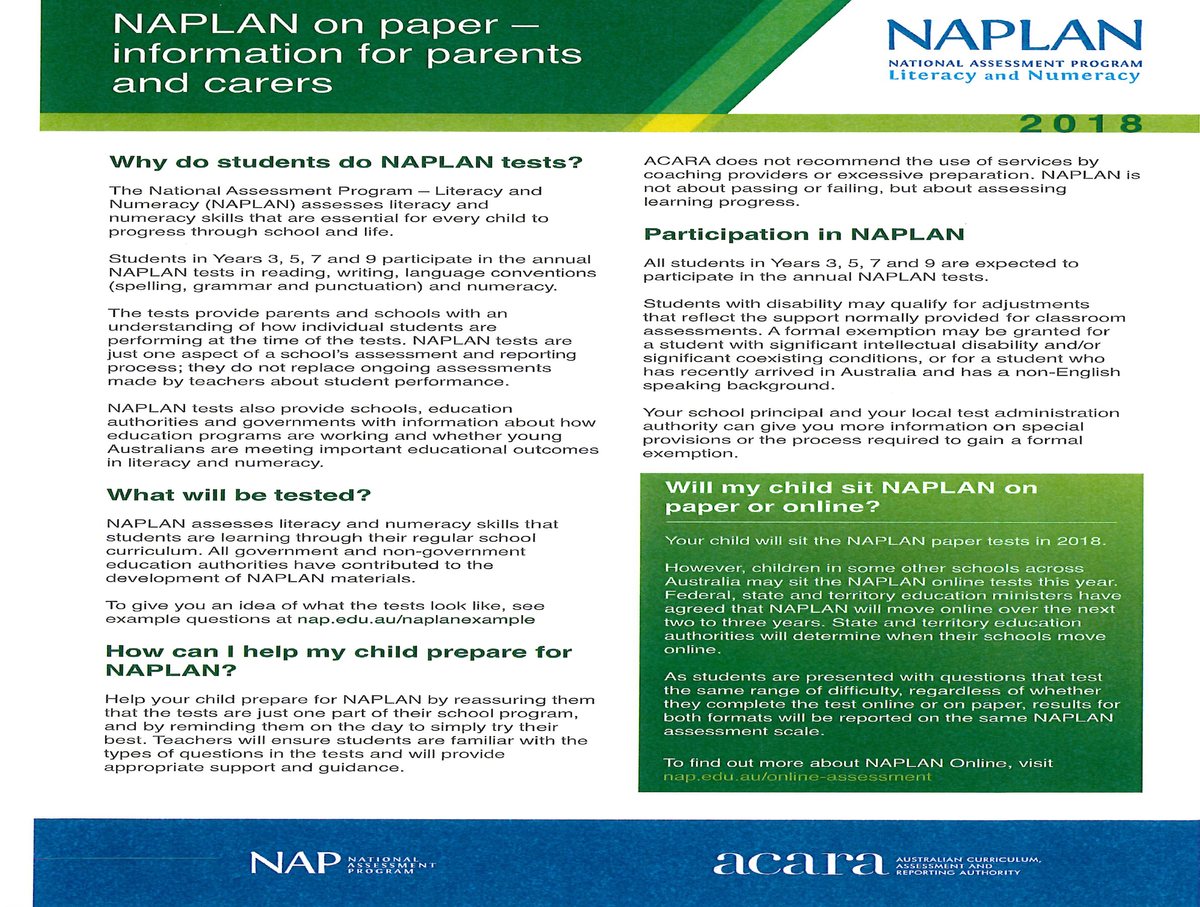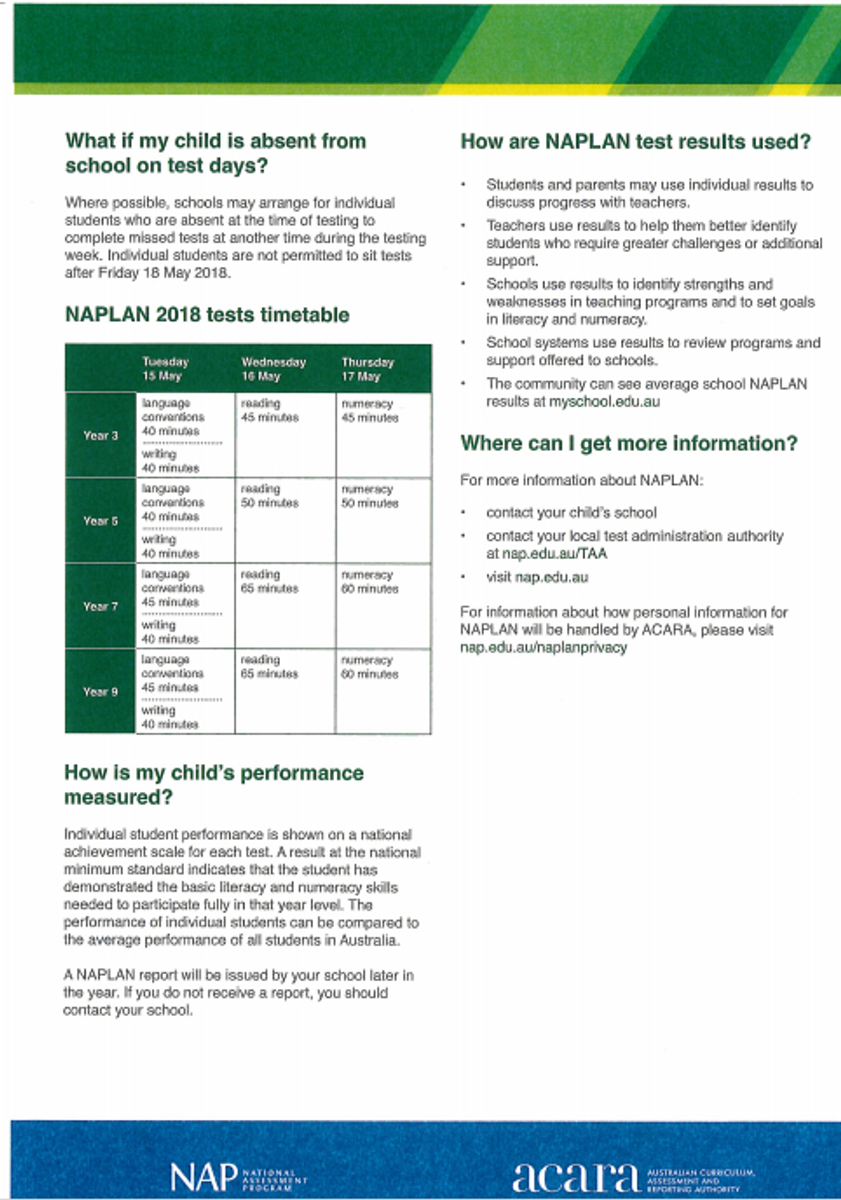Assistant Principal
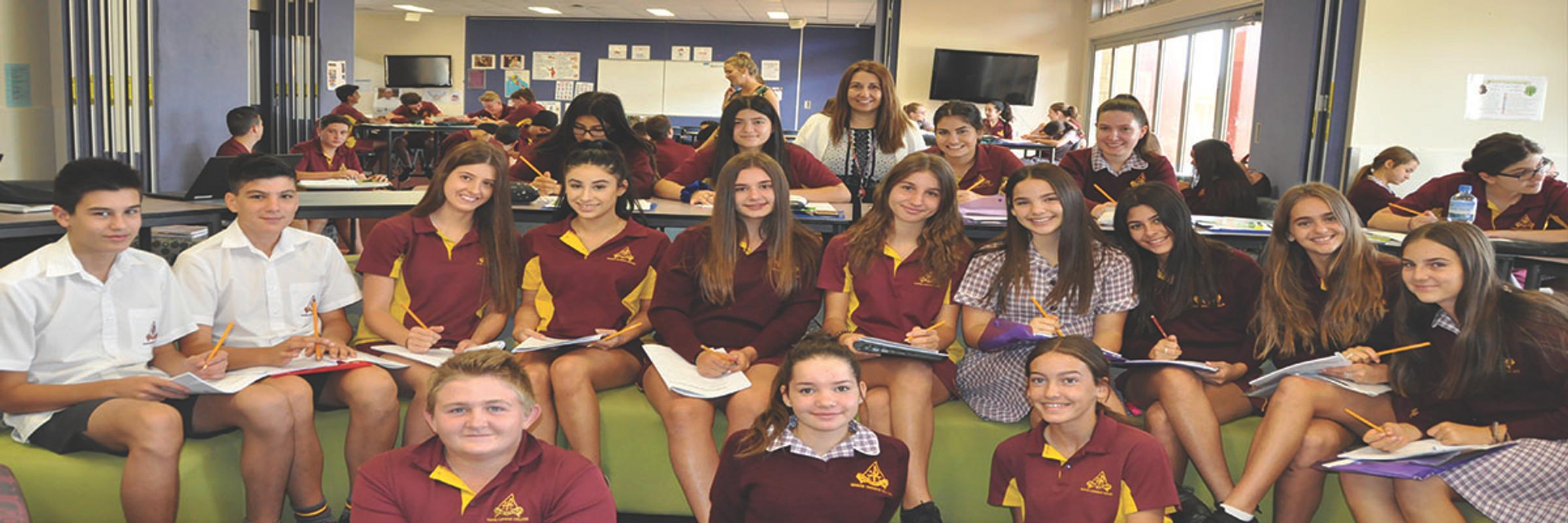
GR8 TEACHING AND LEARNING PRACTICES
As I visit classrooms and the diverse learning spaces around the College, it is pleasing to see our entire student body engaged in their learning and connecting with their teachers during this first term of the school year. On a daily basis, I am very proud to witness quality teaching and learning in safe, happy and well-resourced classroom spaces.
Researchers in Education discuss a great deal about “student engagement.” For improved student achievement, it is clear from the research, that we must ensure students are interested in their work. Complimentary to this, a school must have staff who have the motivation to work hard for the benefit of student learning. As educators, we also need to consider “Academic Extension” and “High Expectations” in our classrooms rather than simply engagement. Everyone should be extended to explore their potential; academically, socially, physically, emotionally and spiritually. As a result, the learning environment should offer high expectations for both students and teachers to achieve “Academic Extension.”
MOSS and BROOKHART’S MODEL
for Effective Teaching and Learning
Using the Moss and Brookhart’s (2015) model of effective teaching and learning practices below, our aim at Marian Catholic College is to achieve academic extension and high expectations by ensuring there is a consistent and relatively predictable format and process for every 63-minute lesson, every day for every student.
This theory of action rests on the central role of students as informed decision makers who can assess and regulate the quality of their learning and work.
And if they aren’t there yet, our task is to work as a coherent team to help them get there!
Moss and Brookhart (2015:27-29)
Moss and Brookhart’s model of effective teaching and learning essentially consists of five main phases that interrelate throughout a lesson. The phases include:
· MODEL & EXPLAIN: Know what is required. Set learning goals. We use the term “learning intention.”
· GUIDED PRACTICE: instruction between teacher and students. After the teacher introduces new learning, often with examples etc.
· PERFORMANCE OF UNDERSTANDING: students demonstrate their understanding. They might write, speak, draw, dance, create, make, calculate, perform, move etc. etc. depending on the subject. They have a go!!
· FORMATIVE AND EFFECTIVE FEEDBACK: given students to improve their learning. Where am I now? How do I know? What do I need to do next to move my learning forward?
· IMPROVED PERFORMANCE: GOLDEN 2ND CHANCE. Students use the feedback to perform in an improved way.
At Marian we are committed to ensuring we foster a collaborative learning culture that will help prepare our students to become active citizens in society who can think critically and problem solve. Applying the phases from Moss and Brookhart’s model will enable all our teachers to work towards the common goal of providing consistent, meaningful learning experiences in every lesson, every day.
Year 7 Best Start Trial
Best Start Year 7 is a literacy and numeracy assessment package for schools to use in the first five weeks of Year 7 from 2019. It is designed to assist teachers to identify students at risk of falling behind in literacy and numeracy and to more effectively target teaching for students. The assessment package included online tests and links to syllabus documents, the literacy and numeracy progressions and support materials.
Our Year 7 students participated in a trial of the Best Start Year 7 online assessment questions on Monday April 9 and Tuesday April 10. The primary purpose of this trial was to test the reliability of the questions, not to assess students.
The College decided to take part in this trial in order to have our input into the Best Start Year 7 assessment package, which addresses one of the key elements of the NSW Literacy and Numeracy Strategy 2017-2020.
I wish to extend my thanks to the Year 7 students for their mature approach when completing the tests and for providing their valuable feedback via an online survey. I also wish to thank Lisa Davis, Year 7 Pastoral Leader, Mr Lee Summerville, Leader of Technology and Innovation, Mr Micheal Crosato and Mr Mathew Condon, our IT gurus, and our wonderful Office Staff for supporting me in the logistics to coordinate the Year 7 Best Start Program trial. Also thank you to the teaching staff and the teacher assistants who helped with the supervision of the students during the trial period.
Quicksmart Mathematics Program
Throughout 2018, the College will continue to offer an extra program of learning support to some students who we have identified as requiring targeted teaching in some areas of Mathematics. The program, called QuickSmart Numeracy, provides learning support to students who could benefit from an intense program to improve numeracy.
Students participating in the QuickSmart program will be withdrawn from class three times per week for a thirty-minute lesson. They will be grouped in pairs and work with the QuickSmart instructor. The instructor will strive to ensure the QuickSmart program is a positive, motivating learning experience for the student.
The aim of the program is to support students to ‘speed up’ their basic skills in numeracy. It is essentially a practice program that helps students to improve recall of basic number facts and to develop trust in their own ability to recall accurately. Improvements in these basic skills are likely to benefit students in all areas of their learning.
I wish to thank Mr Jacob Dal Nevo for leading the coordination of this fantastic program and wish to thank Mrs Julie Cavallaro and Mrs Anita Kumaran who help identify the students who would benefit from this program and administer the learning sessions with each student.
Naplan 2018 for year 7 and 9
The National Assessment Program – Literacy and Numeracy (NAPLAN) assesses literacy and numeracy skills that are essential for every child to progress through school and life. Students in Years 3, 5, 7 and 9 participate in the annual NAPLAN tests in reading, writing, language conventions (spelling, grammar and punctuation) and numeracy.
The tests provide parents and schools with an understanding of how individual students are performing at the time of the tests. NAPLAN tests also provide schools, education authorities and governments with information about how education programs are working and whether young Australians are meeting important educational outcomes in literacy and numeracy.
Please see the attached information sheet for the 2018 NAPLAN testing dates and for key information about the various tests and student expectations.
MINIMUM STANDARD literacy and numeracy students in current year 10 cohort
The Minimum Standard Literacy and Numeracy Students in Year 10 who did not meet the minimum standards in NAPLAN in 2017 will have a number of opportunities to attempt the online tests in 2018. Apart from our whole school approach to literacy and numeracy across all subject areas via the Gr8 Thinking Comprehension Project, the College is also monitoring each student in preparation for these online tests with various new initiatives led by the Literacy Team and the Numeracy and Literacy Action Team.
The plan forward includes:
• Identifying those students who have not met the minimum requirements in any of the three key areas, Reading, Writing and Numeracy.
• Determining growth of students since taking the NAPLAN test in May 2017 by looking at each student’s data.
• Providing opportunities for practising the test online will allow students to feel more prepared and confident.
We are very mindful that this process overwhelms some students and therefore, we will work with individual students to determine the best time for them to sit the test.
Wishing you all the best for a safe and happy weekend and a restful school holiday period for all our students and staff.
Mrs Tonetta Iannelli
Assistant Principal – Learning and Teaching
